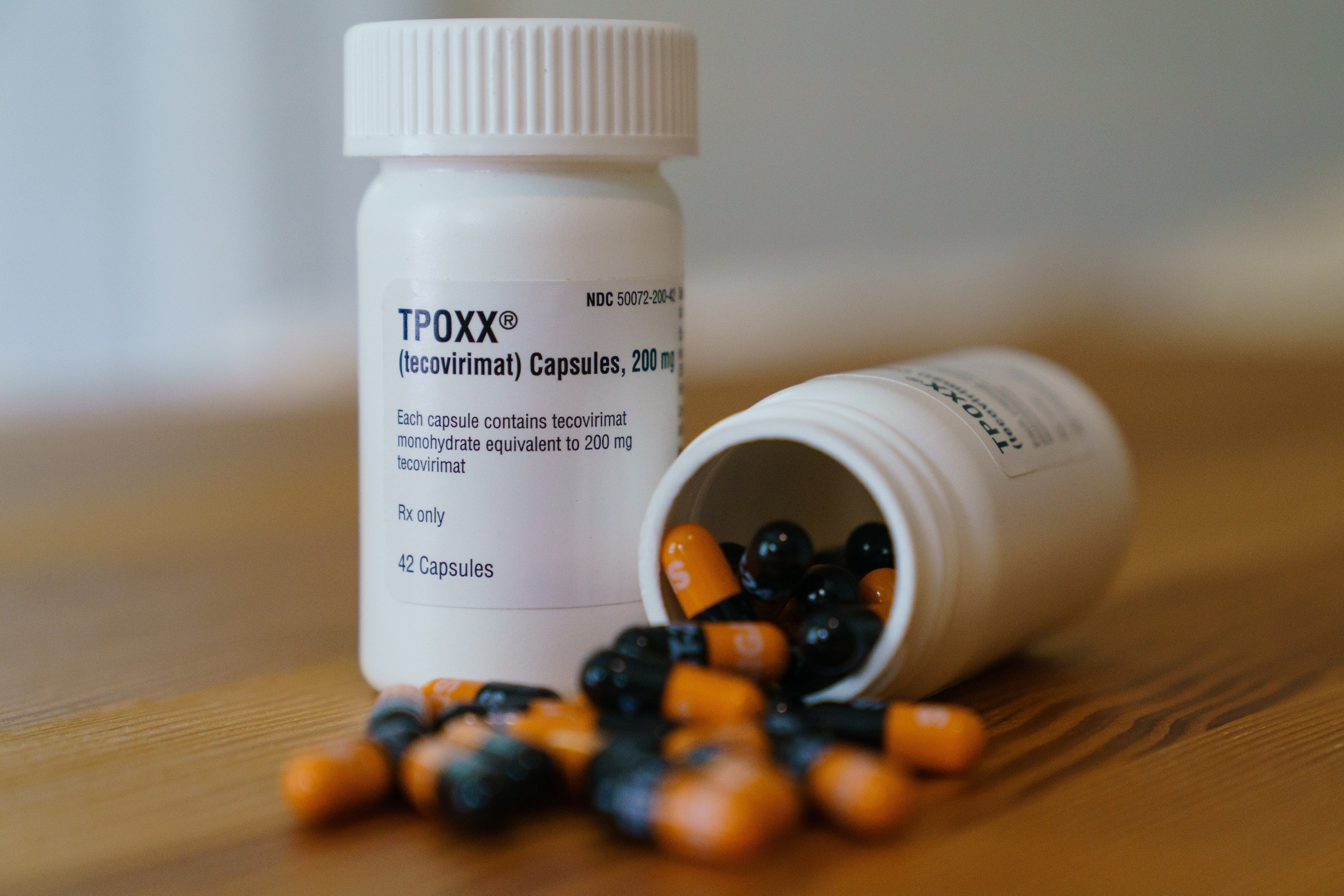As mpox continues to spread in Central Africa, a promising antiviral drug to treat the infection has failed to improve patients’ symptoms in a trial in the Democratic Republic of the Congo, the epicenter of the outbreak.
In the trial, the drug tecovirimat, also known as TPOXX, did not alleviate the characteristic blisterlike rash seen in people with mpox, formerly known as monkeypox. In an unusual step, the US National Institute of Allergy and Infectious Diseases (NIAID), which sponsored the study, announced the initial findings earlier this month prior to the full results being peer reviewed and published in a scientific journal.
Lori Dodd, branch chief of NIAID’s clinical trials research and statistics branch, tells WIRED that the agency shared the initial results “due to the urgent need for scientific evidence on the use of tecovirimat for the treatment of mpox.” That urgency, she says, was reinforced by the World Health Organization designating the mpox outbreak in Central Africa as a global health emergency on August 14. It’s the second such declaration in two years.
The results come as a disappointment, especially as Central African countries are struggling to contain transmission of mpox. Since the beginning of this year, 13 African countries have recorded a total of 20,720 confirmed or suspected cases of mpox and 582 deaths, according to an August 25 report from the Africa Centres for Disease Control and Prevention.
On Monday, the World Health Organization launched a six-month strategic plan aimed at reining in the outbreak. The plan, which is estimated to cost $135 million, includes boosting surveillance efforts, as well as improving access to testing and vaccines. “The mpox outbreaks in the Democratic Republic of the Congo and neighboring countries can be controlled, and can be stopped,” said Tedros Adhanom Ghebreyesus, WHO Director-General, in a statement.
There are approved vaccines to prevent mpox but no drugs indicated to treat the disease. Tecovirimat was approved by the US Food and Drug Administration in 2018 for the treatment of smallpox, a related virus, and ongoing trials of the drug were launched in 2022 to treat mpox amid a global outbreak of the disease. The drug has also been available in the US for mpox through an expanded access program, which allows a physician to treat a patient with an investigational drug outside of a clinical trial. In the UK and Europe, TPOXX was approved for mpox under exceptional circumstances without comprehensive data on its efficacy.
As part of the trial in the DRC, nearly 600 participants were randomly assigned to receive tecovirimat or a placebo and were admitted to a hospital for at least 14 days, where they were monitored closely. All participants received supportive care, which included nutrition, hydration, and treatment for any secondary infections. While the drug was found to be safe, it was no better at clearing up patients’ lesions than the placebo.
Notably, mortality was lower, and patients’ lesions cleared up faster than anticipated regardless of whether they received tecovirimat or placebo. The study’s 1.7 percent overall mortality among enrollees, regardless of whether they received the drug or not, was much lower than the mpox mortality of 3.6 percent or higher reported among all cases in the DRC.
“There is something positive to take from this,” says Jason Zucker, an infectious disease physician at Columbia University. “Clearly, supportive care alone was enough to bring mortality down dramatically.”
There are two types of the mpox virus, clade I and clade II. The DRC trial enrolled children and adults with the clade I version, which is known to cause more severe disease. Clade I is endemic to Central Africa and is the type that is responsible for the current outbreak, which has spread from the DRC to neighboring countries. Earlier this month, Sweden’s health agency announced the first case of clade I mpox outside of Africa. The person became infected with the virus while traveling in an area of Africa with mpox transmission.
Clade I was thought to have a mortality rate of around 10 percent, so the trial results are still good news, Zucker says. Without specific drugs for mpox, it means that good supportive care improves patient outcomes. Proper wound care in mpox patients is particularly important, because any break in the skin presents a risk of infection, he says. Mpox lesions can last two to four weeks and are often accompanied by fever, headache, muscle aches, and fatigue.
Clade II tends to cause milder illness and is endemic in West Africa. It was a clade II subtype virus that was behind the global mpox outbreak in 2022 that reached the US and Europe. People with compromised immune systems, children, and people who are pregnant are especially vulnerable to severe mpox regardless of the clade type. Tecovirimat is being studied in the US in people with clade II, including at Columbia University.
“These results suggest that it may not be effective in clade II either,” says Timothy Wilkin, chief of the division of infectious diseases and global public health at the University of California, San Diego. Along with Zucker, Wilkin is an investigator for a US trial that is testing TPOXX in people with clade II. The results from that trial, which has enrolled around 60 percent of its target number of participants, may not be available for another few years.
Wilkin says the findings from the DRC also underscore the need for high-quality randomized clinical trials for mpox treatment. “There’s been really widespread use of tecovirimat through an expanded access program without really clear evidence of efficacy.”
Meanwhile, as mpox cases mount in Africa, tools to fight the virus are sorely needed. In a press briefing on Tuesday, Jean Kaseya, Africa CDC’s director general, says mpox vaccines are expected to finally reach the DRC by next week. Vaccines have been widely available in the US, Europe, and other countries outside Africa. In the absence of a vaccine, Africa CDC has been promoting the importance of prevention, including hygiene practices and avoiding contact with people with mpox lesions.









